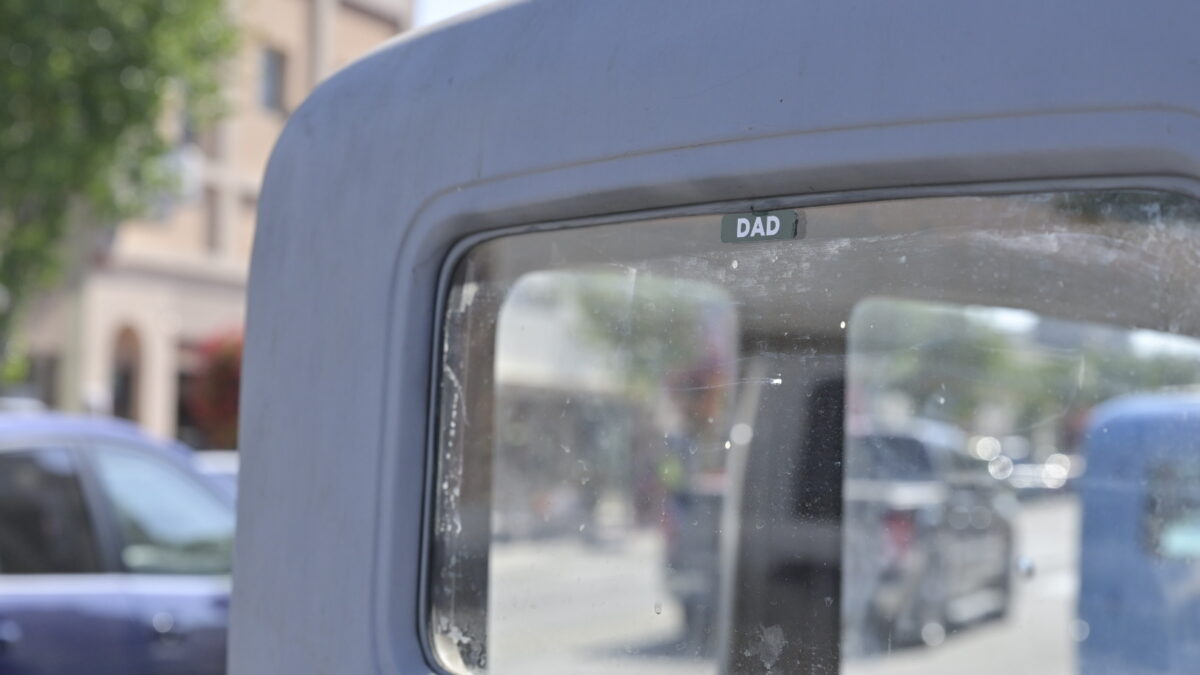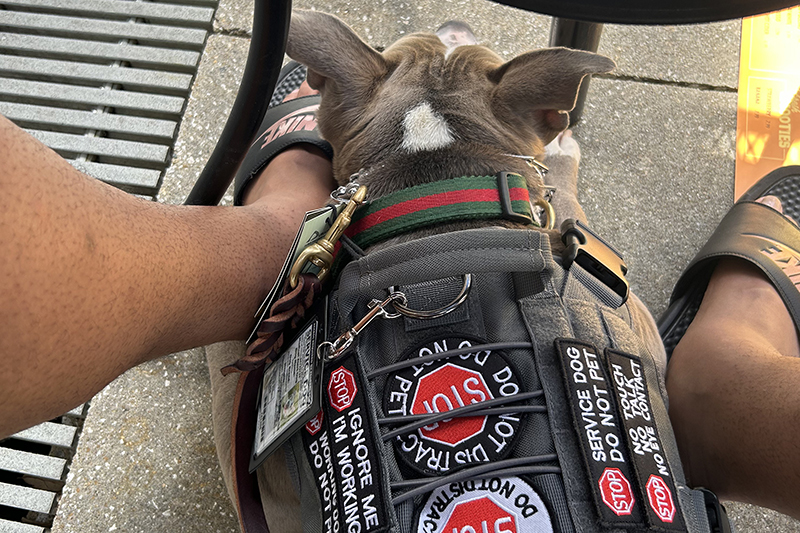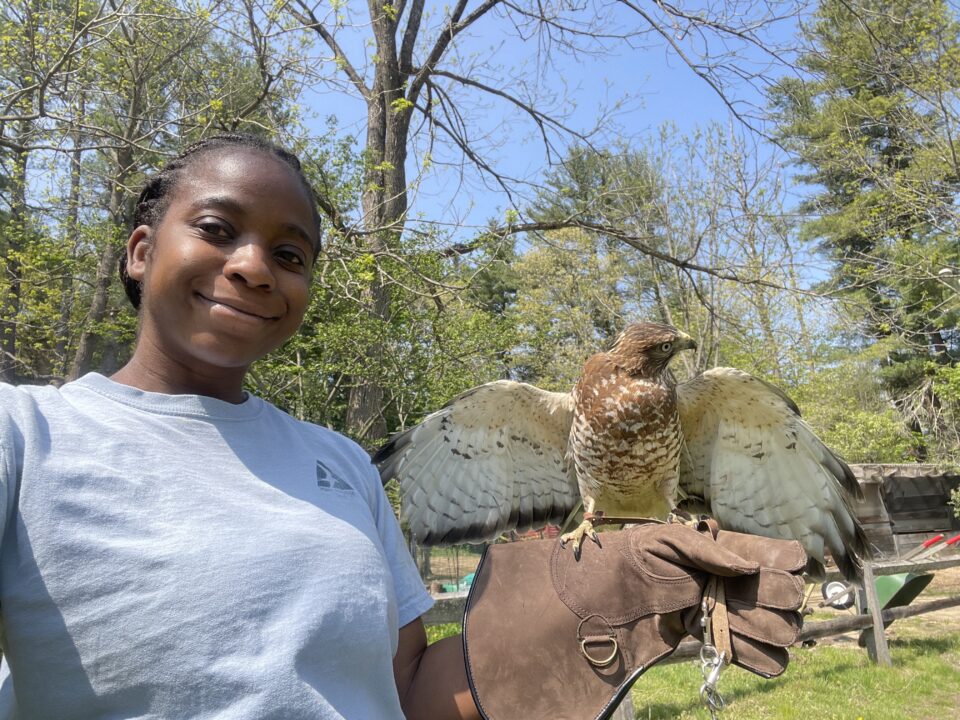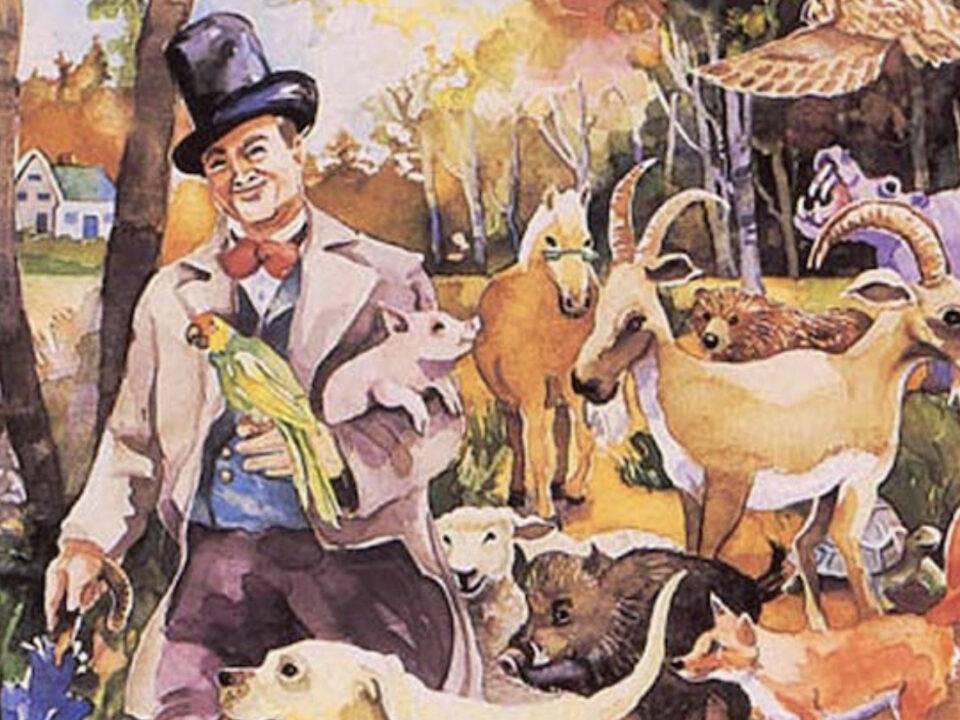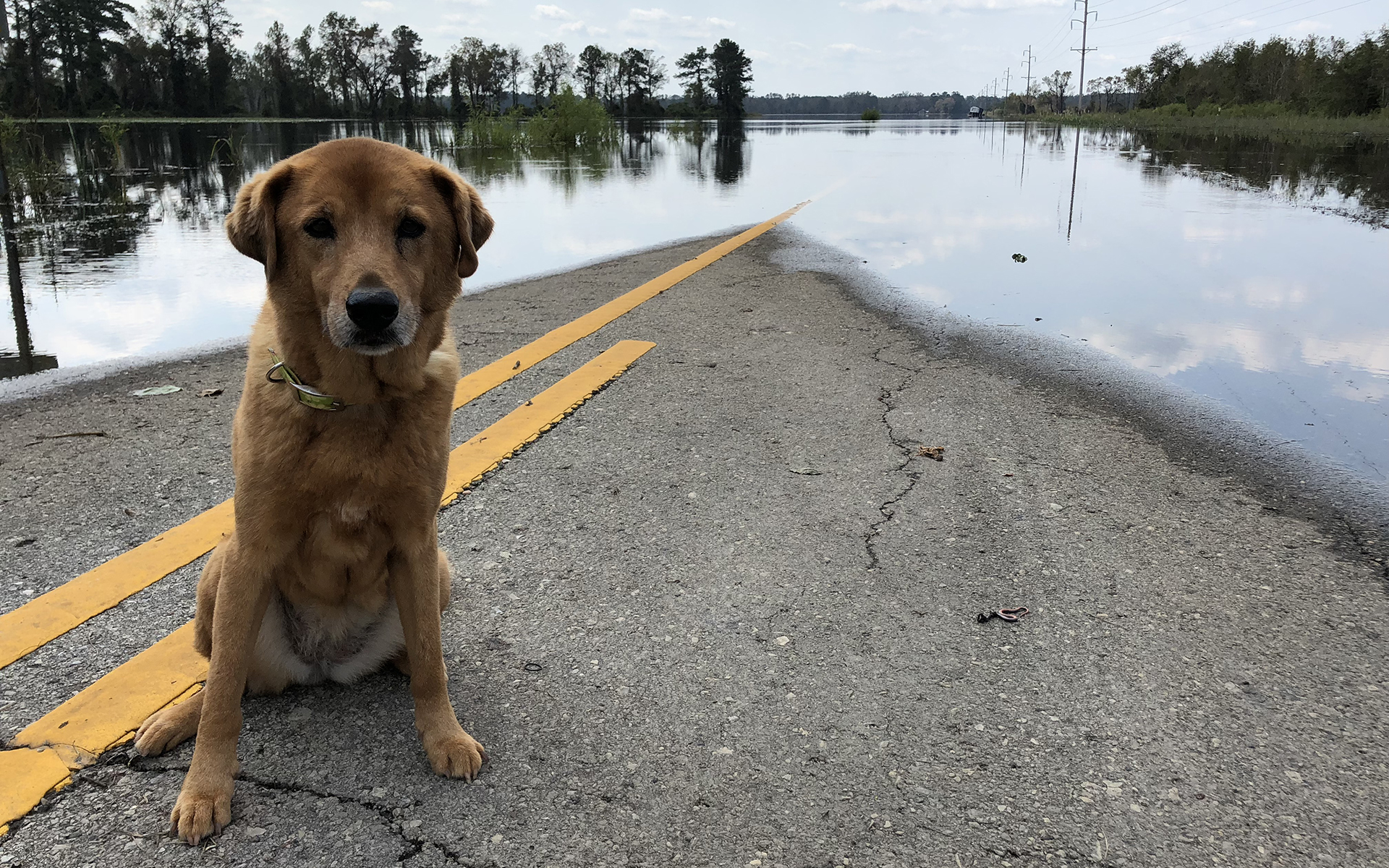
A Lawyer’s Journey to Environmental Justice
March 28, 2022Companions and Animals for Reform and Equity Provide $26,5000 Research Grant for Independent Researchers to Study Impacts of 2021 Tornadoes in Bowling Green, KY on People of Color and their Pets
May 2, 2022By Katya Lidsky
I used to volunteer at the old South LA Animal Shelter. I used to sit on the dirty floor of the kennels with beautiful dogs and scared dogs and eager dogs and broken dogs and sometimes I’d read the intake notes about how or why they ended up there, and other times I’d just imagine it. Make assumptions. Fill in the gaps. I was (and still am) a passionate, animal-loving woman who desperately tried to make sense of their pain, to defend their abandonment, and to figure out a way for them to get out alive.
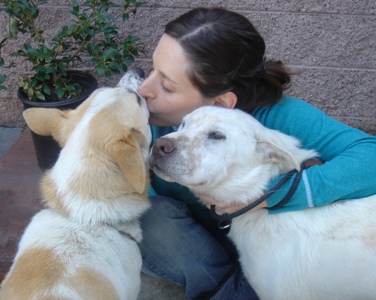
But it was a spring afternoon when I happened to be walking a shy gray Pitbull outside on the grass littered with cigarette butts. I noticed a man pulling up to the curb in a pickup truck with a large German Shepherd tied up in the back bed of the truck. The man said something in Spanish to his dog, and a shelter volunteer mumbled, “Here we go again. He’s dumping his dog.” And a shelter volunteer said, “Here we go again. Let’s go talk to him,” only to find out that he was there to adopt a second dog, a friend for his Shepherd. He’d brought his dog along to do a meet-and-greet. Both of those shelter volunteers were me – the one who’d drawn the conclusion and the one who approached that man.
“My home is not a home without two German Shepherds in it,” the man told me that afternoon under the Los Angeles sun.
He didn’t own a leash. He’d take a day off of work, something he’d hardly ever done just to come and adopt another dog. And me? I swallowed a lump of regret and shame. This wasn’t the first person I’d assumed things of, but for some reason – maybe it was his kind eyes, maybe it was his sweet dog, wagging her tail from the truck bed – he was the right person at the right time saying the right words to shift something in me. I realized I thought I knew a lot about the animal shelter system, but really, I knew too little.
I returned the lovely gray Pittie to her kennel and joined the man inside to show him some of the Shepherds I knew who needed a good home. I spent almost an hour with him introducing him to dogs who might be a match for him and his family. The man took home a tender-hearted senior Shepherd mix and by the end of that day, I got permission from the staff to start an intervention table outside of the shelter.
I am not here to lecture anybody or to pretend I’m some angel, martyr, or perfect person. I have a long list of defects of character and failures I’m still working to accept in myself. But the one thing I had going for me that day was that I didn’t have a language barrier and thus was able to speak to this man, was able to ask myself how many times I’d decided things about people that could have been wrong, to ask myself if I was willing to volunteer in a different way. Being Cuban and speaking Spanish led me to discover a pile of lies I’d made up about other people who don’t live like I do.
I am nervous even writing that: I am Cuban. I struggle to identify as Cuban. Even though my grandparents and my parents are from Havana, and even though it’s probably the greatest cultural influence on my family, my descendants from way back when are Eastern European Jews and my skin is white. My eyes are blue and my skin is white and I look like I stepped out of a Chekhov play. This means that when somebody looks at me, they don’t see Cuban, they see White. This means, too, that when that man showed up with his dog, we were both Hispanics having an exchange but I was judging him from the seat behind my white skin.
“I realized I thought I knew a lot about the animal shelter system, but really, I knew too little”
Katya
I hate confessing that to you. I’ve often wished my outside matched my inside, and yet on that day volunteering, I passed judgment on a fellow Latino. But being proven wrong rocked me to my core, resulted in an opening, and that matters more than my embarrassment.
The sad feeling I had for the dogs behind bars meant more to me before I met this man than the truth, the real reason he’d come to the shelter. And lucky for me, I was put in my place in a soft way, through a friendly experience, but it still shocked me, it shook me, and it forced me to recognize that my devotion to animals meant I had to love people more. Because we need people to save pets.
That man was the first time a real narrative was louder than my own ideas and it smashed something in me immediately like a brick being thrown at a glass window. And so my intervention table began. Weekend after weekend, I’d park myself on a folding chair on the sidewalk in order to talk to people before they entered the building. Whether they were there to surrender an animal or adopt one, I’d be the first face they saw, and I committed to making it a smiling face, a warm one. I would find out what they needed and how we could help them. This meant I considered every person who approached my table as a worthy individual (not only their animals as worthy individuals), with circumstances I did not know and could not quantify. It was their life; I did not live it. I did not get to measure it. My job was to respect it.
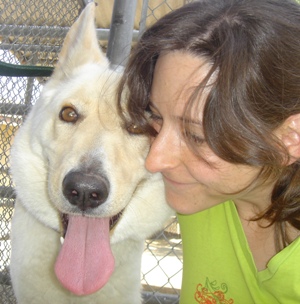
Deciding to put myself in these situations again was one of the best choices I’ve ever made. Not because it was comfortable (it was not.) But because I’d spent a lifetime wanting to claim my Latina roots, and the only way it really counted, the only way it became valuable was when it no longer became about me. When it became entrenched in service. Sure, I was anxious. Would people hear me? Take me seriously? Could I even help? Who was I to help? Did anybody care? Turned out most people do care; they care very much. I met more people like that man with the Shepherd, and when I gave them just a moment to share their story, when I listened, I became aware that every encounter was another opportunity to challenge my thinking. Most people just needed a little help. Many people came to the shelter as a last resort when surrendering, and as a first stop when they were searching for a pet to bring home. My intervention table taught me that people needed resources, support, community, a safe place to lean in and someone to talk to, maybe a hand to hold. Moreover, people needed the benefit of the doubt, they needed understanding, they needed a chance. I was not alive to be anybody’s litmus test, but rather to be helpful in my purpose and to expand that purpose from being for animals to for animals and the people who loved them.
I was not right and they weren’t wrong. I was just a shelter volunteer who was a Cuban Jew and looked white. And that meant I had to face all the ways I was white, not only hold up all the ways I was a Cuban Jew when it was convenient for me to do so. It meant I had to learn that there were many ways to love animals and coexist with them and provide for them, and that there was a wider definition of proper pet care than “my way.” (Note that I am not and never would attempt to excuse abuse or neglect, but in over a year of my intervention table, I dealt with one case of cruelty.)
It does not bring me pride to tell you a story about a time I passed judgment. But instead of hiding it (which I’m good at) or punishing myself (which I’m very good at), I decided to take action (which I’m thankfully also good at.) And I’m sharing about it here because I truly believe in the work CARE is doing, and I believe we’re all part of this work no matter who we are, what we look like, or what the ticker-tape of thoughts in our minds is spouting.
“I was just a shelter volunteer who was a Cuban Jew and looked white. And that meant I had to face all the ways I was white, not only hold up all the ways I was a Cuban Jew when it was convenient for me to do so”
Katya
I am still a shelter volunteer although I no longer sit at an intervention table. Thankfully, there are others offering these incredible services and doing it much bigger, much better – Downtown Dog Rescue and Better Together Forever, to name a few of my favorites. I would like to suggest that this work lives inside all of us however, and that it does not require an actual table. All it requires is a willingness to challenge our thoughts and entertain the opposite notion, to not know, to learn. It requires a willingness to be honest with ourselves, not so we can feel bad but so we can grow, connect to other people, and make a difference for them and their animals.
On top of being a woman of action, I am a woman of words, so in the end, I am sharing all these words about action in an effort to simply say –
To the man with the truck and the Shepherd: Thank you for beginning the deeper phase in my own evolution. You were not there to teach me, but you did, and I am grateful for you.
To CARE: I’m here on the ground floor in Austin, Texas if you need me. I am here, ready to listen and support and be your soldier.
To you reading: being sorry doesn’t mean much and it isn’t enough – it’s what we do that counts. Take action with me, won’t ya? Reach out, you’ve got friends here so you don’t have to do it alone.
I will keep reckoning with my own privilege and the ways I’ve benefitted from it, even if it’s unsettling. Especially if it’s unsettling, for I’ve learned to pay extra attention then, to consider the unease as a call for change. Awareness is an ongoing practice, which means more humility, which means more grace, and grace is what brings me to the animals again and again. Mindsets can switch through incremental, daily encounters if we allow them to. Now when I arrive at the shelter to volunteer with the animals, I remind myself to stay open to people. Now when I sit on the dirty floor of kennels, I think: Are you okay, doggie? And also: Who loved you?
I fight for those pets to get adopted, but I hope their people are okay. And if they’re not, I want to say to them, to put out into the world: come in, come find us, come over. We’re here for your animals and we’re here for you, too. No judgment, take my hand.
Katya hosts a podcast called The Animal that Changed You. You can read about it and tune into episodes on her website www.katyalidsky.com/podcast


